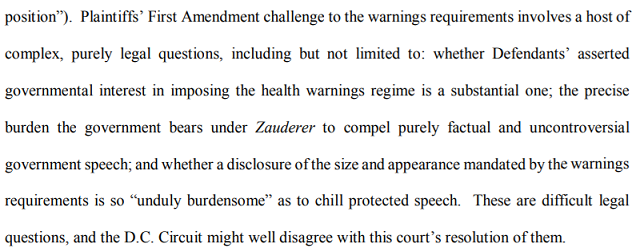In May 2016, Cause of Action Institute (“CoA Institute”) sued the Department of the Army after it refused to produce records under the Freedom of Information Act (“FOIA”) concerning the use of teleconference technology at the White House. CoA Institute’s FOIA request, which was filed in June 2015, followed the release of a record in an unrelated FOIA matter by the Office of Management and Budget (“OMB”). That email revealed how a special email account, “system.manager@conus.army.mil,” had been set-up and was operated by the military for the purposes of facilitating teleconferences.
Although the OMB record may strike some as containing seemingly benign information, it nonetheless piqued our interest. We realized that little is known about how the Executive Office of the President (“EOP”) arranges its audio and video conferences. Moreover, there is scant public information available about the important role played by the President’s “IT team,” the White House Communications Agency (“WHCA”), in the functioning of the White House. We were also troubled because the OMB record showed how WHCA was responsible for facilitating a conference call for inter-agency consultation on “White House equities.” As we have repeatedly described, “White House equities” review is a form of FOIA politicization that allows the President to interfere with and delay the production of politically sensitive records.
WHCA released approximately 200 pages of email correspondence in response to our request. The Army, however, failed to identify any responsive records. In the lead up to summary judgment proceedings, we continually asked the Army about its efforts to search for records in the “@conus.army.mil” account. We had even given the Army a copy of the OMB email when we filed an administrative appeal in September 2015. But the Army kept mum and only provided details about its “search” last month, arguing that it had located the so-called CONUS account and determined that its contents were stored on Army computer servers. But the Army claimed that the account would contain zero “responsive records.” Why? Because only “EOP personnel” interfaced with the account, even though it was owned and maintained by the military and stored on Army hardware.
We filed our own cross-motion for summary judgment yesterday. The first part of our argument focuses on the Army’s unjustifiably narrow and unfair reading of our FOIA request, which sought all records of correspondence with EOP about conference calls “hosted and/or arranged by the military.” Not only did we give the OMB record to the government to demonstrate exactly the sort of records we wanted—which should be enough to defeat the Army’s interpretation of the scope of our FOIA request—but any natural reading of the operative words “hosted” and “arranged” would include the situation of an agency maintaining a software system and email account for the sole purpose of setting-up audio and video conferences. Whether Army personnel were involved in the day-to-day business of confirming the details for a new conference, or merely set up some sort of automated process, is without moment.
The second part of our cross-motion concerns the redaction of non-contractor employees of the Department of Defense (“DOD”) in the WHCA correspondence. DOD takes the position that, as a categorical matter, nearly all the names and email addresses of its employees may be kept secret. But there are several problems with this position. First, FOIA caselaw generally disfavors categorical claims and, in the context of personal privacy interests, the public interest can outweigh an individual’s right to keep their name and work information secret—particularly when the individual is a government employee. Second, official DOD policy posted on the agency’s FOIA website explicitly directs the sort of information we want to be made public unless disclosure would raise “substantial security or privacy concerns.” Finally, the FOIA’s newly-added “foreseeable harm” standard mandates that an agency demonstrate how specific pieces of information may, if disclosed, be reasonably foreseen to harm an interest protected by a statutory exemption. That sets a high bar, particularly in the context of DOD’s categorical and generally applicable policy. In this case, it seems unlikely that the EOP’s IT staff could be described as working in a “sensitive” position, akin to activity duty military personnel on the front line or law enforcement officials involved with criminal investigative activities. We look forward to the Army’s reply brief.
Ryan P. Mulvey is Counsel at Cause of Action Institute.

